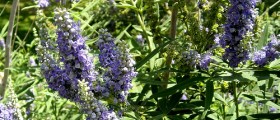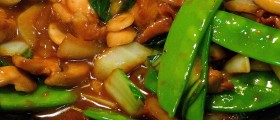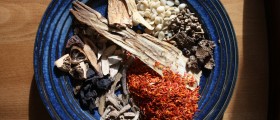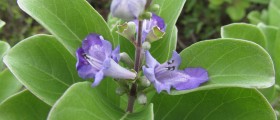
For overweight men, the best natural estrogen blockers are the testosterone stimulants in bee pollen (the pollen gathered by bees but not turned into honey) and the traditional Chinese herb known as epimedium, or horny goat weed. These plant compounds are not actually estrogen blockers, but rather testosterone stimulants. It is more useful, however, to lose weight. As little as 5 to 10 pounds can make a substantial difference in male fertility. Other helpful lifestyle changes include avoiding excessive consumption of beer and soy foods. Men who take anabolic steroids and testosterone injections are also at risk of excessive estrogen levels, since a man's body converts excess testosterone into estrogen. For these men, the passionflower extract chrysin and 4-androstene-3, 16, 17-trione (not to be confused with androstenedione) are the most helpful. These compounds are true estrogen blockers, blocking the creation of estrogen from testosterone.
In women, excessive estrogen is the most common culprit behind endometriosis, the formulation of abnormal fibrous tissues in the lining of the uterus. These accumulations of muscle and connective tissue in the wall of the uterus are known as fibroids. When fibroids are the problem, the natural estrogen blocker is vitex, also known as chasteberry. Phytoestrogens in vitex interact with glands in the brain to reduce the production of luteinizing hormone, which in turn reduces the amount of estrogen released during the first half of a woman's menstrual period. The lower the release of estrogen, the greater the likelihood of ovulation and conception. Vitex, however, should not be taken during pregnancy, so women seeking to become pregnant should only take the herb between the first and tenth days of their periods, which they know they are not yet pregnant.
- medlineplus.gov/druginfo/natural/970.html
- medlineplus.gov/druginfo/natural/967.html
- Photo courtesy of Emma Jane Hogbin Westby by Flickr: www.flickr.com/photos/emmajane/7003416330/















Your thoughts on this
Loading...